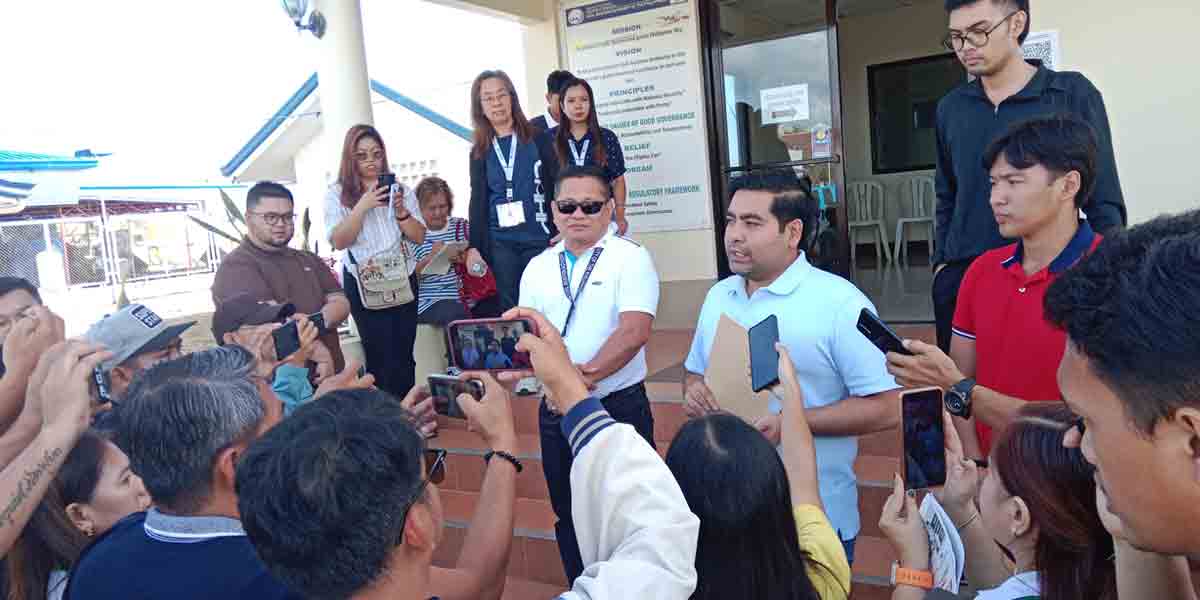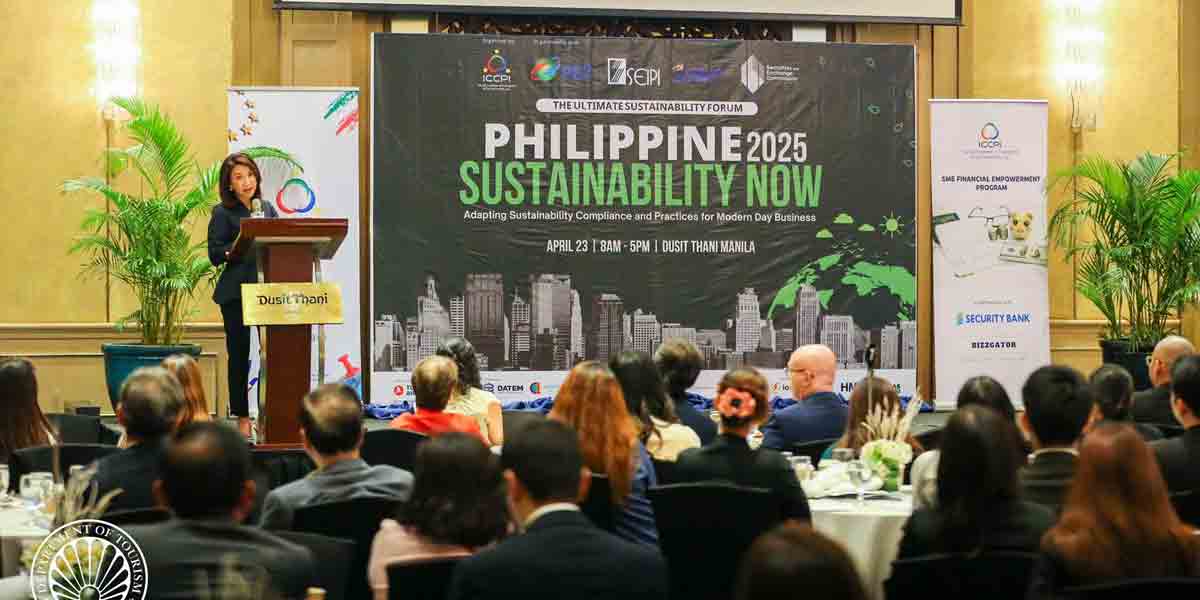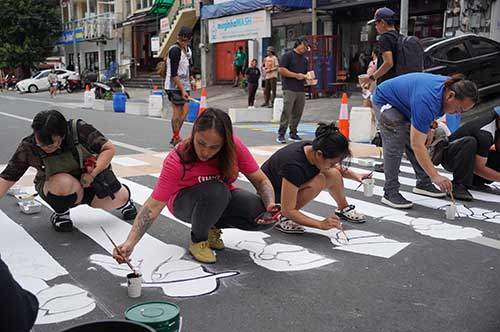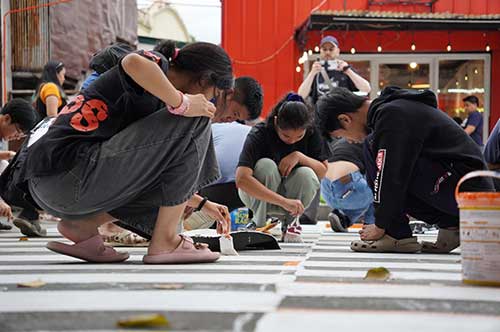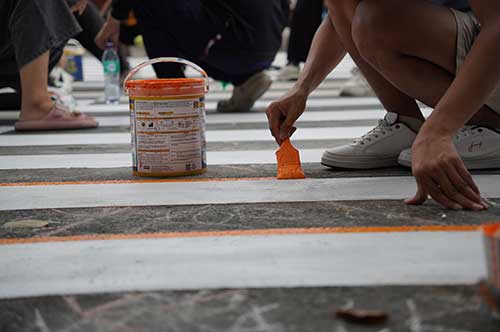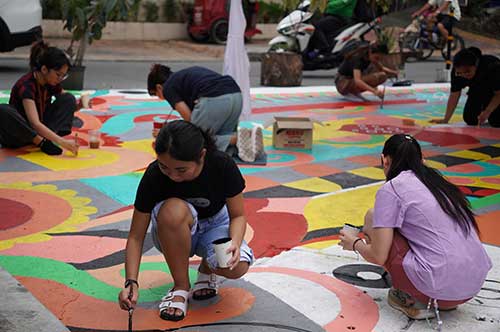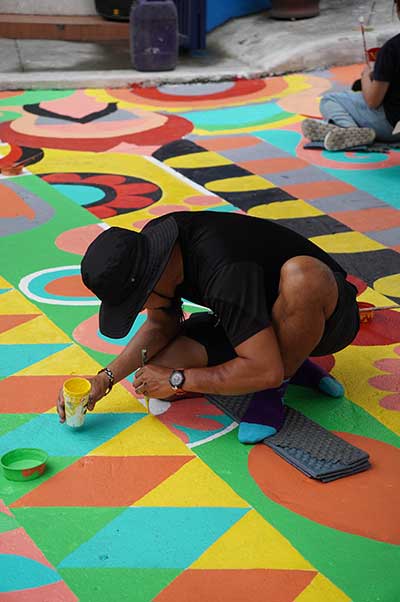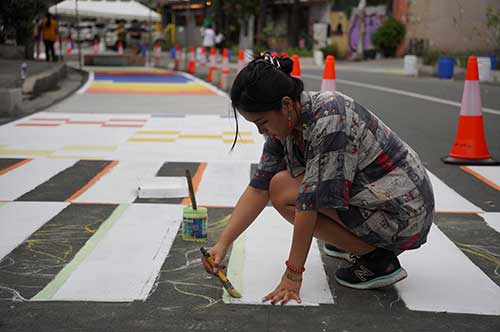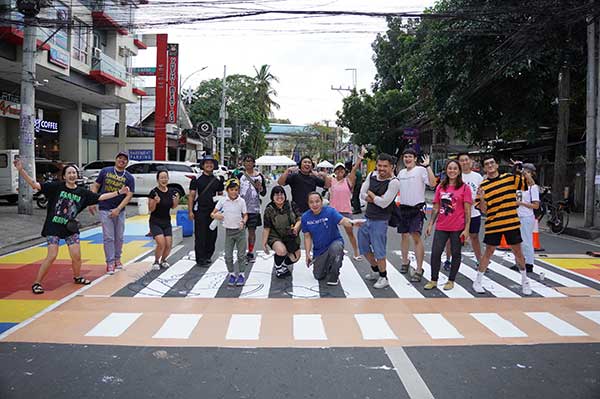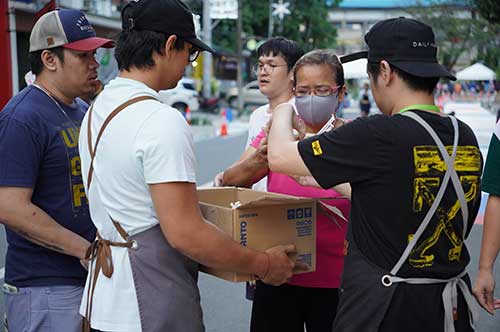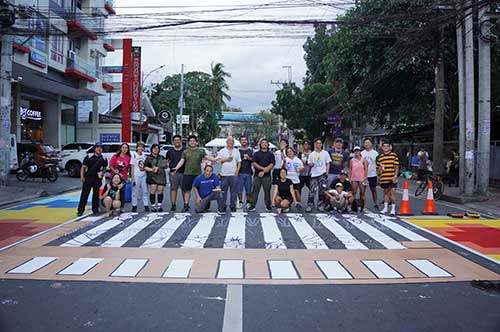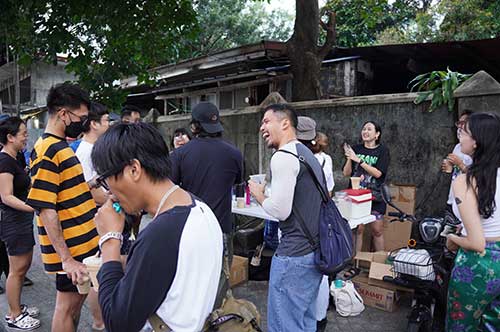Maginhawa Street, known as Quezon City’s arts and food hub, has become a focal point for community cooperation, as residents, businesses, and advocacy groups unite to create shared spaces for cyclists and pedestrians.
Volunteers transformed a stretch of Maginhawa Street, from Magiting Street to the Teachers’ Village East barangay hall, by painting colorful murals. One side of the street now serves as a shared pathway for cyclists and pedestrians, while the other provides space for residents and customers to relax and socialize.
“Maginhawa thrives because of its local businesses and sense of community. However, uneven sidewalks and parked cars often cause congestion, making the area less safe for walking and cycling,” said Arielle Celine Tabinga, urban development manager of the Institute for Climate and Sustainable Cities (ICSC).
Tabinga emphasized the need for interventions that prioritize safety and accessibility, ensuring they meet the community’s needs.
The activities, held on November 23-24 and November 30, are part of the Sparking Active Mobility Actions for Climate-Friendly Cities (SPARK) project. SPARK uses tactical urbanism—community-driven, small-scale actions—to enhance urban spaces.
The project is spearheaded by ICSC and ICLEI Local Governments for Sustainability (ICLEI) in partnership with the Quezon City government, Barangay Teachers’ Village East, and the Maginhawa Food Community.
“We are starting with temporary interventions using low-cost materials to test their effectiveness and gather community feedback,” said James Anthony Oriña, ICLEI Southeast Asia project officer.
The SPARK initiative runs until February 2025, during which a one-way traffic scheme will be enforced in the area. If successful, the project could be expanded to other locations and implemented long-term in collaboration with local government and community stakeholders.
The Maginhawa community has a history of solidarity. During the COVID-19 pandemic in 2021, the Maginhawa Community Pantry became a national symbol of mutual aid, inspiring similar initiatives across the country.
Ana Patricia Non, founder of the pantry and a volunteer for SPARK, highlighted the project’s goal of fostering a sense of community.
“This project aims to fulfill our shared dream of a safe community. Pedestrians want sidewalks, cyclists want bike lanes, and we all want a better space for everyone,” Non said.
Another SPARK intervention is planned in partnership with Pasig City in 2025.
For more information, visit SPARK Project.




